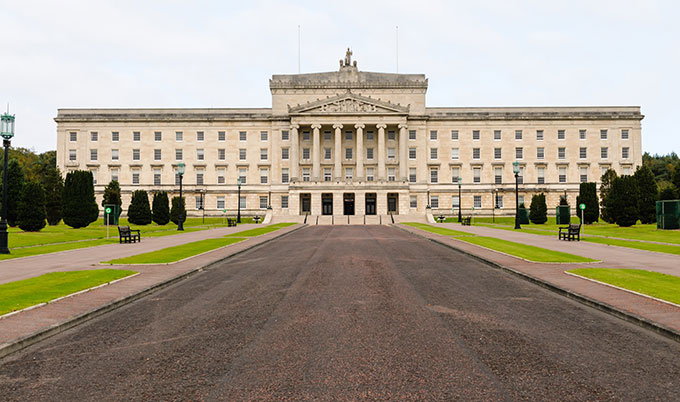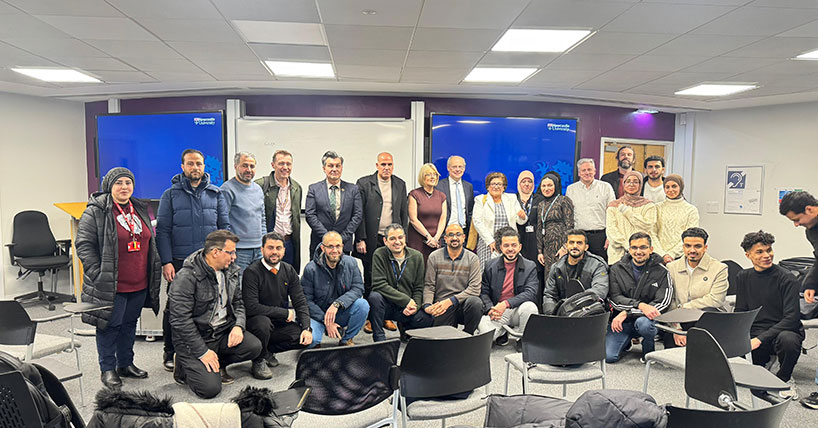Comment northern Ireland peace process
Comment: Northern Ireland is stuck – fresh thinking is needed
Published on: 8 August 2019
Writing for The Conversation, Dr Sarah Campbell discusses why there needs to be a commitment to breathing new life into the Northern Ireland peace process.

Sarah Campbell, Newcastle University
The British and Irish governments were to be found clapping each other on the back for a job well done in 2011. The visit of Queen Elizabeth II to Ireland in May of that year was presented as a new cordial phase in relations between the two nations.
The mutual praise was repeated when Irish president Michael D. Higgins returned the visit in 2014. The UK and Ireland both felt they could “bow to the past, but not be bound by it”.
It was a far cry from the 1970s and early 1980s when the relationship between the two countries soured to the extent that they were “brawling publicly”.
But these grand bilateral gestures in recent years have masked the fragility of the peace process in Northern Ireland, which has been struggling for at least 15 years, if not more. The northern six counties have always been the linchpin of the relationship between the two countries, even before it was the political entity of Northern Ireland. It should therefore come as no surprise that the lack of focus on the North over the past 20 years has now come back to bite both governments.
Iconic agreement
The Good Friday/Belfast Agreement of 1998 brought, if not the end, then certainly a reduction, of violence that had mired Northern Ireland for 30 years, resulting in over 3,700 deaths. It was lauded globally as an example of an iconic peace process that other divided societies should emulate.
Not since James Joyce’s Ulysses have so many claimed to have read, or not read, a document. Irish government officials regularly berate their British counterparts for not reading it, not understanding it, and being a threat to it. Now, both Sinn Féin and the Democratic Unionist Party (DUP) accuse the other of being in breach of the agreement over Brexit. This demonstrates a deliberate dismissal of responsibility by both the British and Irish governments for the lack of progress there.
Now, 20 years on, the Northern Ireland Assembly has been suspended as often as it has been operating. The Northern Ireland Executive is not working. The Consultative Civic Forum (which comprised 60 representatives from the business, trade union and voluntary sectors and was to act as a consultative mechanism on social, economic and cultural issues) has not met since 2002.
The North-South Ministerial Council (which comprises ministers from the Northern Ireland Assembly and the Irish government) has not met since 2016. The British-Irish Intergovernmental Conference, which aims to bring together the British and Irish governments to promote bilateral cooperation, has held two meetings in 12 years.
American diplomat Richard Haass, who was tasked with finding a way forward on the intractable issue of dealing with the past, warned in 2013 that Northern Ireland could no longer be held up as a model of conflict resolution. Despite some movement in terms of residential segregation and shared schooling for Catholic and Protestant communities, he said, the fundamental divisions remained unchanged. More than 93% of children are educated separately from each other, interface walls still divide communities and sectarian riots are accepted as routine annual events.
It is not denied that both the Good Friday Agreement and the St Andrews Agreement (2006) have prevented the return of large-scale violence. However, the model on offer from the top is peace without reconciliation. It is not just intractable issues of flags, parades and dealing with the past that are hampering progress – there is also a failure to tackle bread-and-butter issues such as health, welfare and education.
The area ranks among the slowest recovery from recession on record for the UK as a whole. There has been little change in poverty rates over the past decade. Welfare reforms, which are currently being rolled out by a Tory government as part of a decade-long austerity drive, will have a negative impact on the most vulnerable households.
Despite a £1 billion investment from Westminster in exchange for DUP votes, without a functioning government – and ministerial sign off – big budget education or health reform cannot happen.
These problems pre-date Brexit, and have nothing to do with debate over the backstop.
Unlocking Stormont
Pulling the Good Friday Agreement out of cold storage to beat the British government with is disingenuous. Boris Johnson and the Conservative Party are no better. The confidence-and-supply arrangement between the DUP and the Tories has called into question the neutrality of the British government in the ongoing attempts to restore devolved government in Northern Ireland. Britain cannot claim to be a non-partisan broker between the two main parties in Northern Ireland, when one (the DUP) props it up in Westminster.
But the British government was never a neutral player in the North. Recent investigations have found that British security forces colluded with loyalist paramilitary groups in killing unarmed civilians in Northern Ireland.
The EU, which has had a “soft” role through financial contributions to peace funds, has now taken on the role, willingly or not, of being the unofficial third party (after the British and Irish governments) in the peace process. This will undoubtedly present its own problems for the future of Stormont.
While Brexit is not to blame for the lack of progress in the North, it has placed additional strains on the relationship between the DUP and Sinn Féin. It obfuscates and relegates key issues like equality, health and housing. But the Good Friday Agreement, as it has been implemented in the past two decades, is not capable of advancing these issues either.
The agreement does not necessarily need throwing out altogether, but there needs to be imagination and commitment to breathing new life into the peace process, Brexit or not, and neither Leo Varadkar nor Johnson are demonstrating that they have either.
Sarah Campbell, Lecturer in British/Irish History, Newcastle University
This article is republished from The Conversation under a Creative Commons license. Read the original article.



